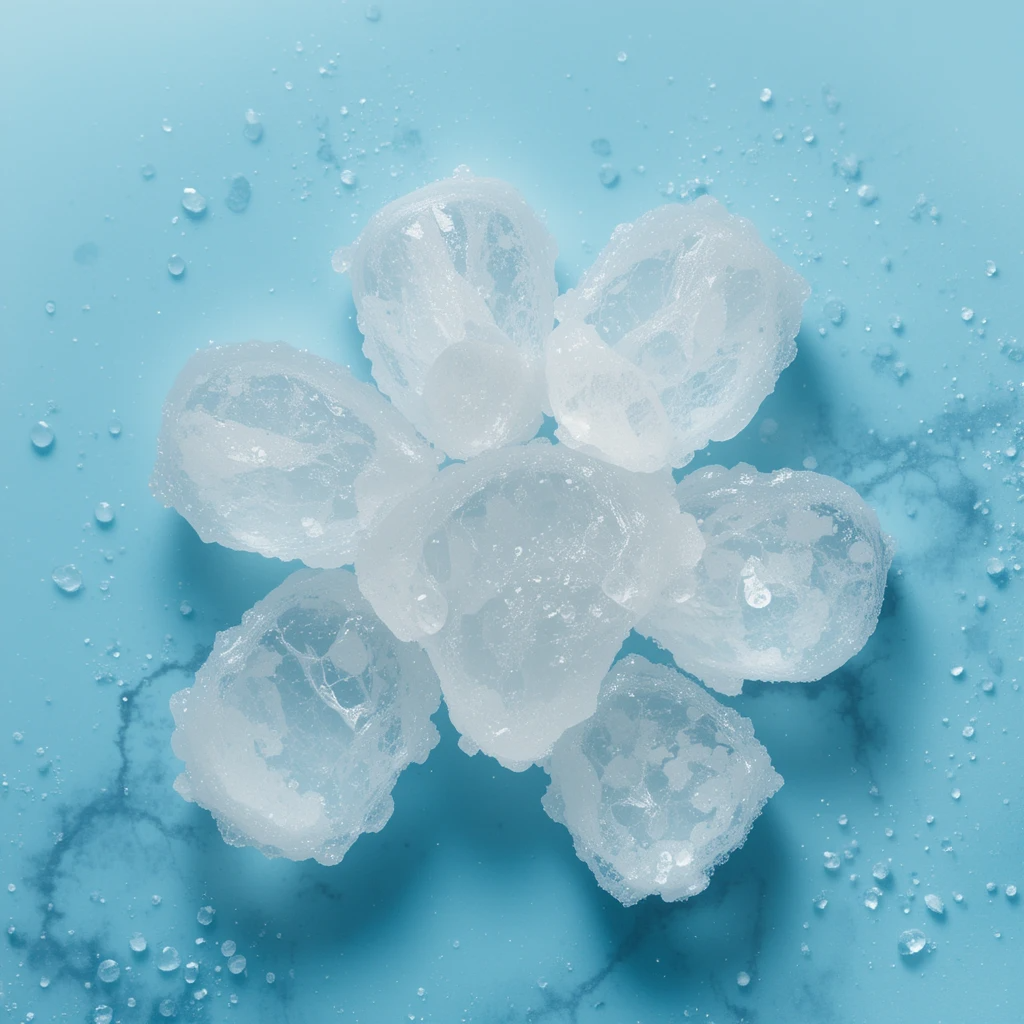A Comprehensive Guide to Understanding Its Side Effects and Safe Alternatives
In our modern world, many people are looking for quick solutions to enjoy sweets without feeling guilty. Artificial sweeteners emerged as an ideal substitute, but over time, studies began to reveal another side to these alternatives, especially sucralose, known commercially as Splenda. So, what is the truth about its side effects? Is it worth the risk?
What is Sucralose?
- Chemical Composition: Sucralose is a chlorinated sugar, made by adding chlorine atoms to regular sugar.
- Approval History: Approved by the U.S. Food and Drug Administration (FDA) in 1998 as a safe sugar substitute.
- Commercial Form: Sold as a white powder or liquid, used in:
- Diet sodas.
- Low-calorie sweets.
- Medications (to improve taste).
Why Do People Turn to Sucralose?
- Marketing Promises:
- Zero calories.
- Does not affect blood sugar levels.
- A “natural” alternative because it originates from sugar!

“Image showing a packet of sucralose, a white powder used as a sugar substitute in various food and beverage products. Sucralose is about 600 times sweeter than regular sugar and is widely used in low-calorie and sugar-free products.”
But are these promises true?
8 Scientifically Proven Side Effects
1. Digestive Disorders
- Symptoms: Diarrhea, bloating, gas.
- Cause: Destroys beneficial bacteria in the gut, disrupting digestion.
2. Disruption of Gut Bacterial Balance
- Studies on rats showed that sucralose:
- Reduces beneficial bacteria (such as lactobacilli) by 47-80%.
- Increases harmful bacteria, even 12 weeks after stopping consumption.
3. Reduced Drug Effectiveness
- Weakens the absorption of critical medications such as:
- Cancer drugs.
- Heart medications.
4. Headaches and Migraines
- A study in the journal Neurology in 2008 linked artificial sweeteners to headache episodes.
5. Increased Risk of Obesity (!)
- Strange Paradox: Although calorie-free, it:
- Increases appetite.
- Disrupts the body’s calorie regulation mechanism.
- A Harvard University study found that users of artificial sweeteners are 47% more likely to gain weight.
6. Elevated Blood Sugar and Insulin Resistance
- A study in the journal Diabetes Care found that sucralose alters the body’s response to glucose, increasing the risk of diabetes.
7. Hypersensitivity
- Rare but Serious Symptoms:
- Swelling of the throat and tongue.
- Difficulty breathing.
- Skin rash.
8. Chronic Inflammation
- A study on rats with Crohn’s disease (2018) showed that sucralose increased E. coli bacteria, which cause inflammation.
Sucralose and Cancer: Is There a Link?
- Controversial Italian Study (2016):
- Rats fed high doses of sucralose developed leukemia.
- Study Criticisms:
- Doses were higher than the approved human limit.
- Results were not replicated in humans.
- Expert Conclusion:
“No definitive evidence of cancer causation, but avoidance is recommended until further notice.”
“Image showing the stevia plant, a green plant used as a natural sugar substitute. The leaves of the stevia plant are dried and used to produce a sweetener that is calorie-free and rich in antioxidants.”
Sucralose During Pregnancy and Breastfeeding
- Canadian Study (2016):
- Mothers who used artificial sweeteners during pregnancy:
- Their children were twice as likely to be obese at age one.
- Breastfeeding Warning:
- A study found that sucralose passes into breast milk, but its effects on infants are unknown.
Where Sucralose Hides
- Surprising Products:
- “Sugar-free” gum.
- Ready-made salad dressings.
- Some cough medicines and vitamins.
- Protein powder for athletes.
Safe Alternatives to Sucralose
1. Stevia
- Source: Leaves of the stevia plant.
- Benefits:
- Zero calories.
- Does not affect blood sugar.
- Contains antioxidants.
2. Xylitol
- Source: Sugar alcohol derived from corn or birch.
- Benefits:
- Reduces tooth decay.
- Low glycemic index (only 7).
3. Raw Honey
- Caution: Contains calories, but its benefits outweigh sugar:
- Natural antibiotics.
- Boosts immunity.
4. Coconut Sugar
- Benefits:
- Rich in potassium and magnesium.
- Glycemic index of 35 compared to 65 for regular sugar.
Frequently Asked Questions
1. Is Sucralose Allowed in Keto?
- Answer: Yes, but alternatives like stevia and erythritol are better to avoid digestive issues.
2. How to Ensure Sucralose is Not in Products?
- Look for Ingredients:
- Sucralose.
- E955 (its European coding number).
3. What is the Safe Daily Amount?
- FDA Limit: 5 mg per kilogram of body weight (for adults).
Conclusion: Should You Stop Using Sucralose?
- Yes, if you:
- Have digestive issues.
- Are pregnant or breastfeeding.
- Have a history of cancer or diabetes.
- No, if you:
- Use it rarely (e.g., once a week).
- Cannot find a suitable alternative.
“Image showing raw honey, a golden liquid rich in nutrients and considered a natural alternative to sugar. Raw honey contains natural antibiotics and boosts the immune system, making it a healthy choice for sweetening foods and beverages.”
Final Advice
Do not trust products labeled “healthy” without scrutiny. Read labels, consult your doctor, and rely on natural alternatives whenever possible. Remember: Sucralose is not an absolute evil, but prevention is always better than cure.
Expert Quotes
“Sucralose is not an ideal sugar substitute and should be used with extreme caution.” – Dr. Ahmed Ali, Nutrition Specialist.
“Natural alternatives like stevia and coconut sugar are better for long-term health.” – Dr. Leila Mohamed, Public Health Specialist.
References
- Neurology, 2008. “The association between artificial sweeteners and headaches.”
- Diabetes Care, 2010. “Sucralose and its impact on insulin sensitivity.”
- Journal of Nutrition, 2015. “The effects of sucralose on gut microbiota.”
Coconuts are used to produce coconut sugar, a natural sugar substitute rich in minerals like potassium and magnesium, making it a healthy choice for sweetening foods and beverages.”
Final Comments
In the end, sucralose can be a beneficial sugar substitute if used in moderation and with awareness of potential side effects. Avoid it if you have specific health issues or are pregnant or breastfeeding. Choose natural alternatives whenever possible and enjoy sweets in a healthy and safe way.